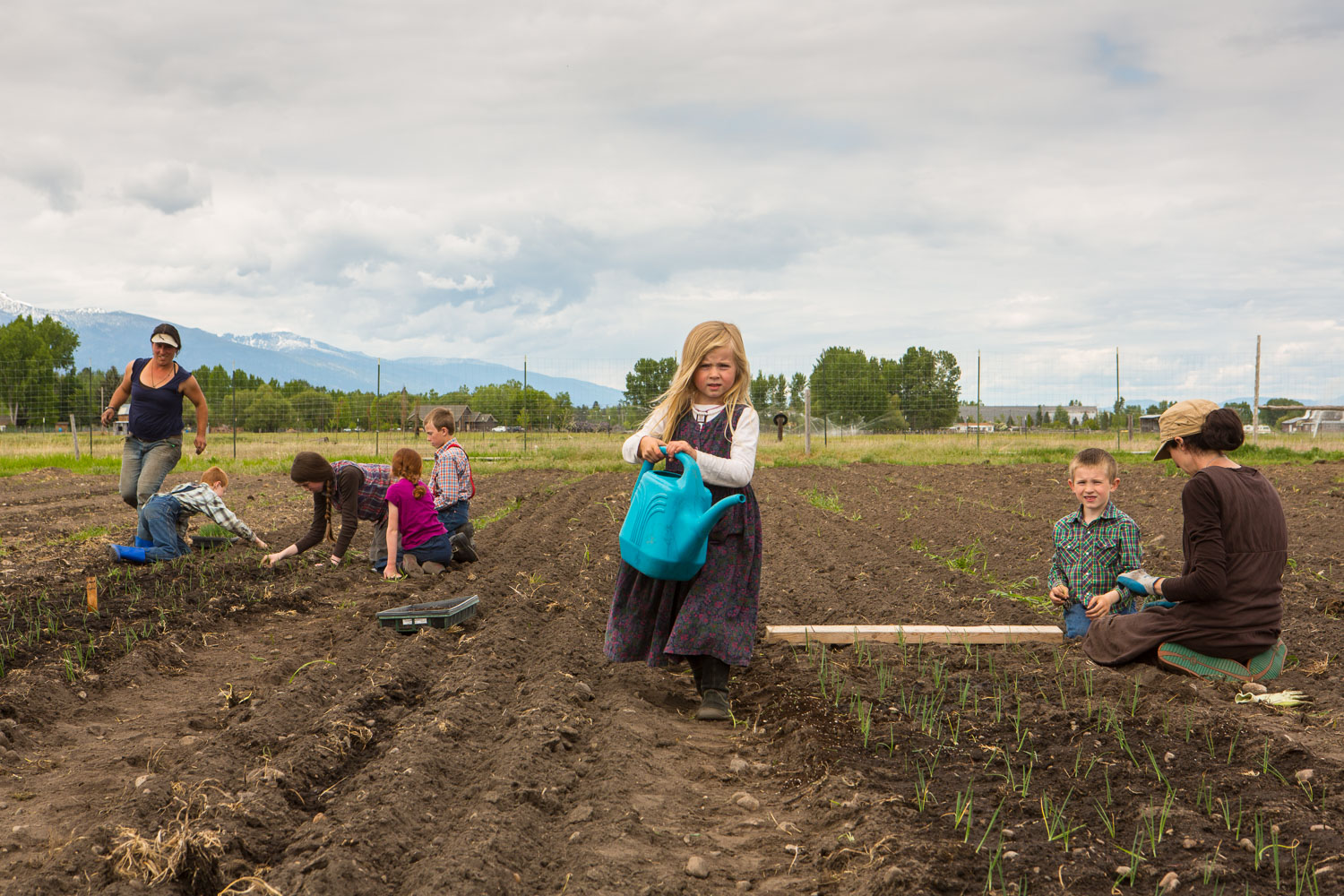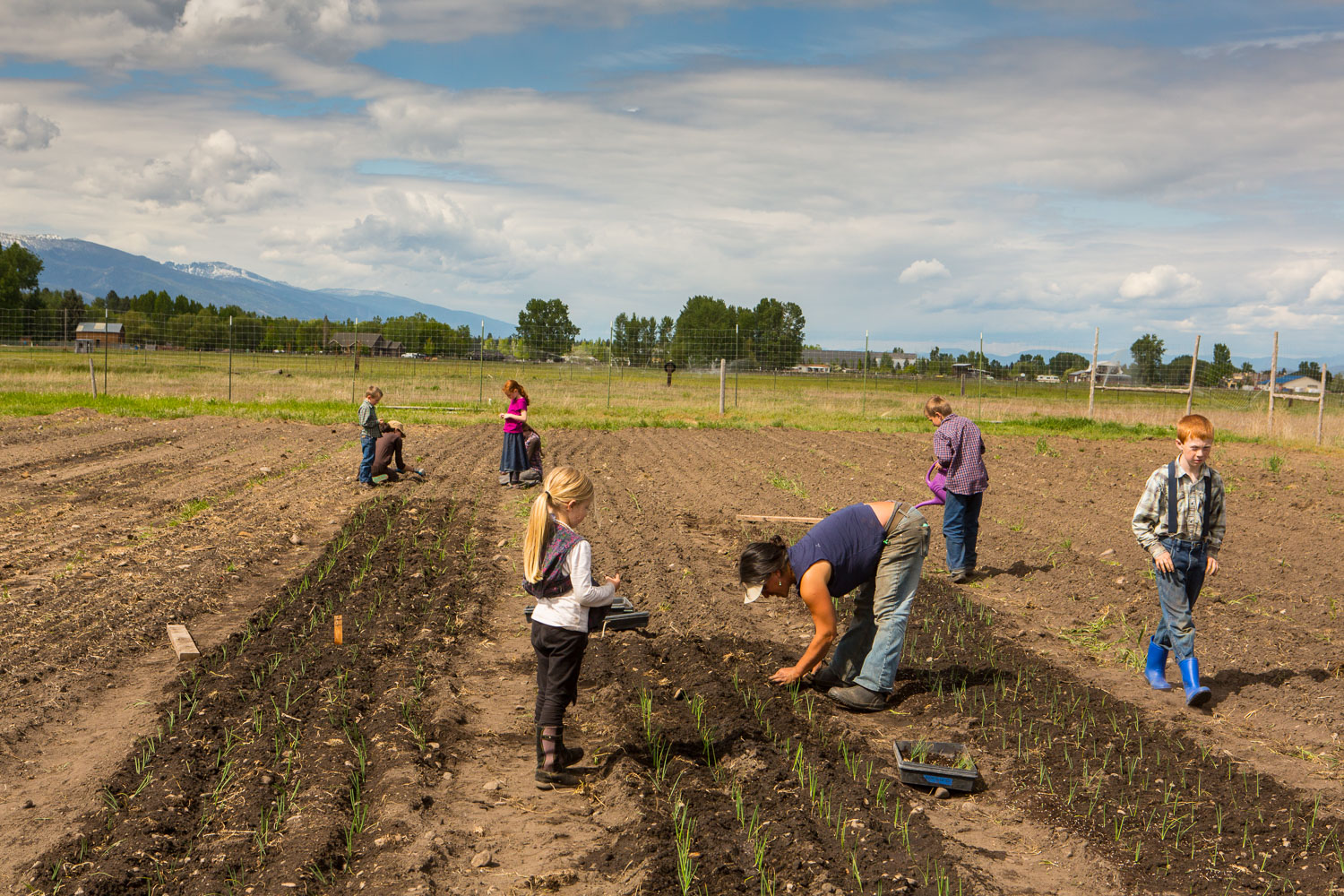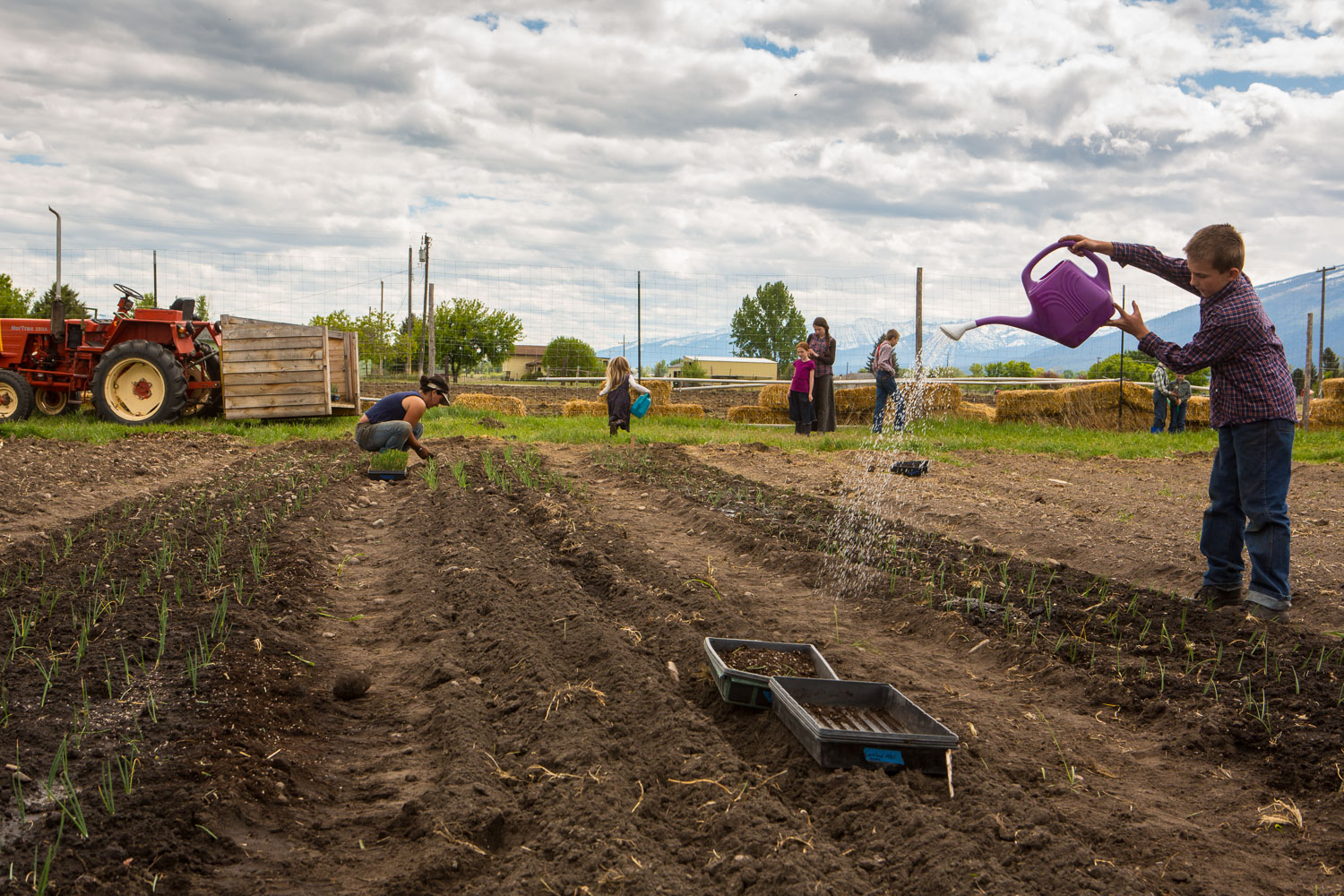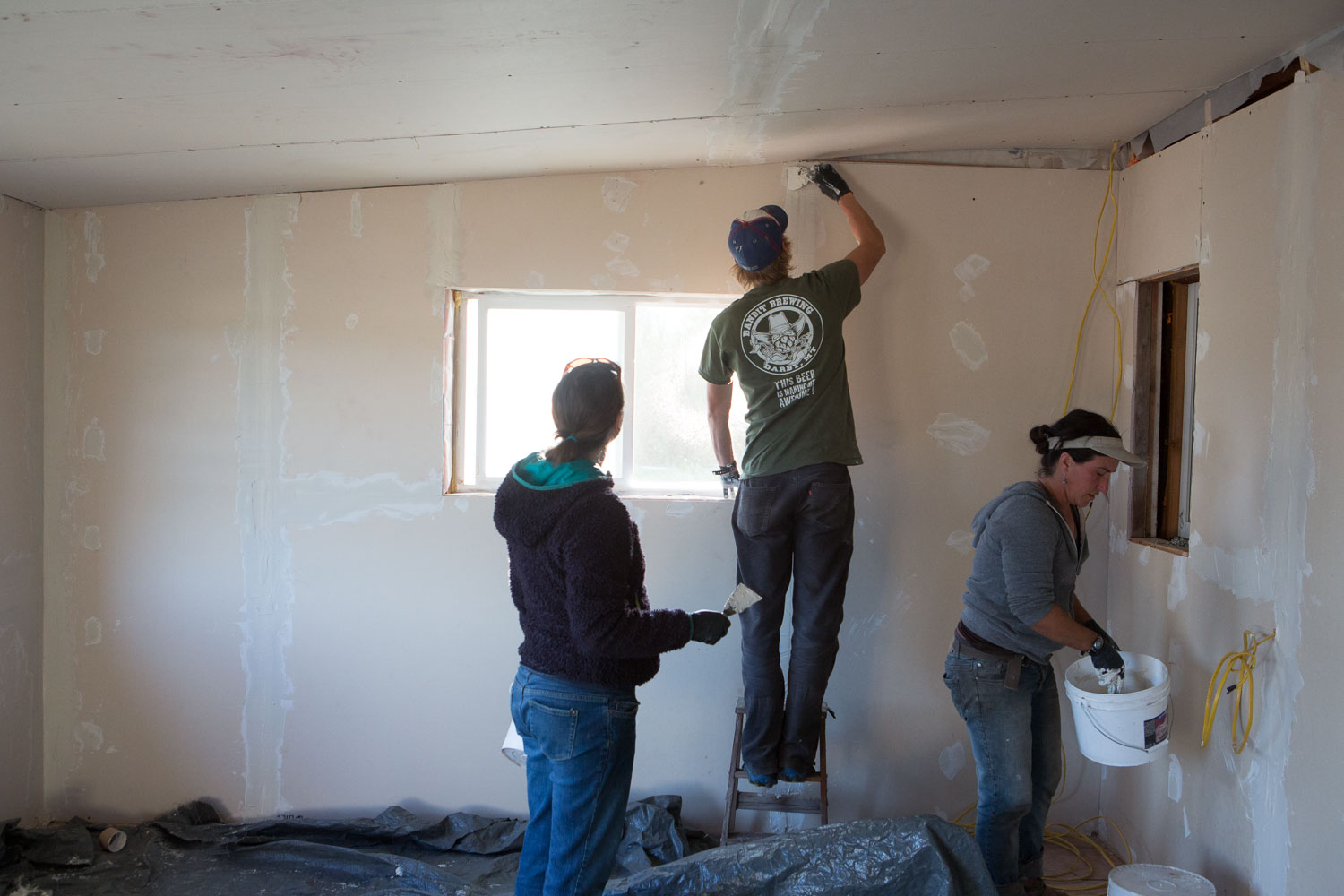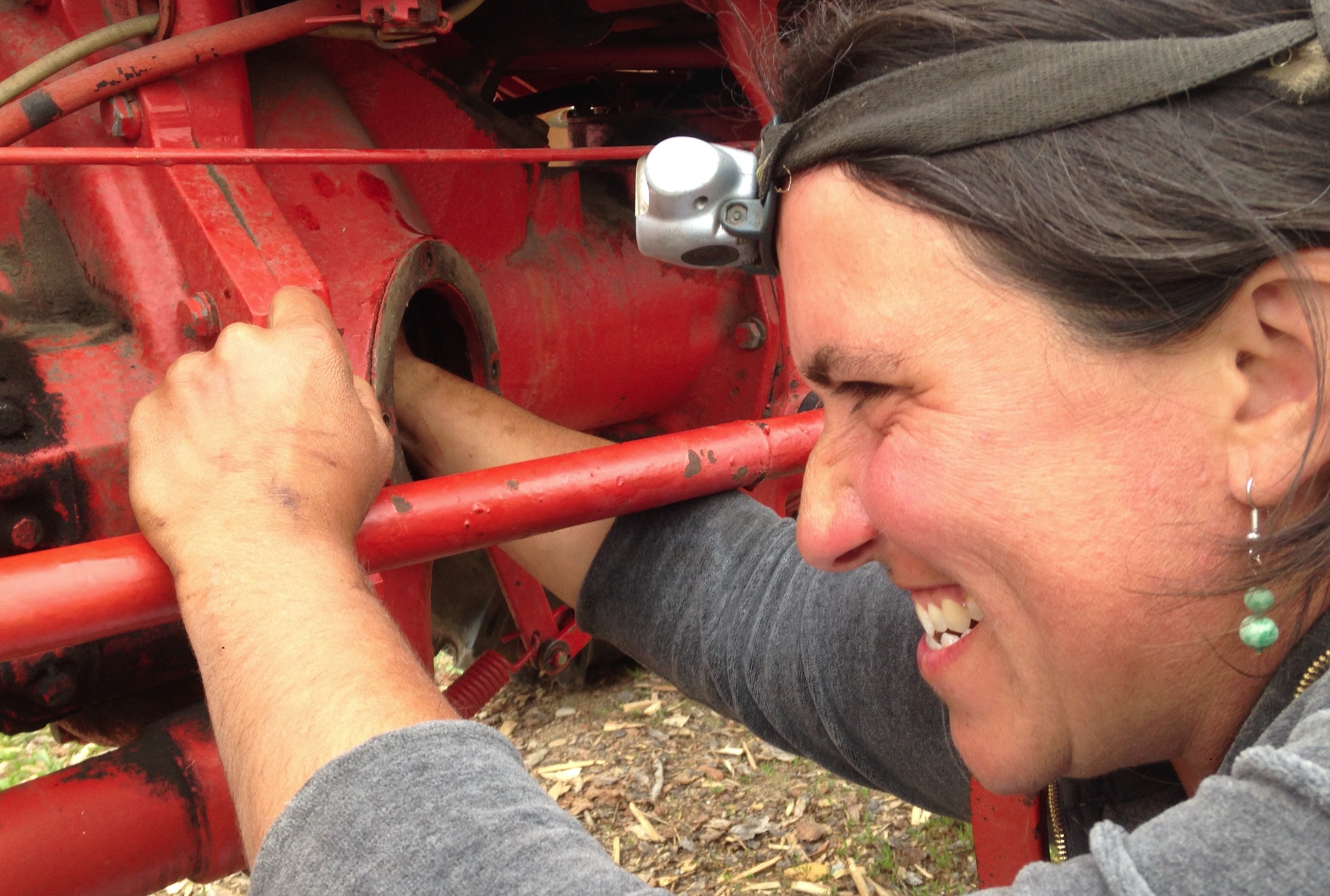Above: Around a campfire late one night in Crocker Range National Park, in Borneo, I share stories with farmers while kids tend to our campfire, conducting their own slumber-party dances.
Last weekend Mary and I ventured off our farm, together, overnight, for the first time in almost two years. We left a three page typed list of instructions with our farm sitter, Hannah, with the level of detail probably common to the first time new parents leave their precious baby. Everything from what to do if the pipes froze to where the kittens like to hide, to all the helpful phone numbers we could think of, and instructions of how to handle an emergency in the middle of the night. (Two different neighbors were on alert for potential 3 a.m. door knocking).
We were headed to an invite-only gathering of small market farmers in Idaho. The three-day conference on the lake proved well worth the intensive departure prep and anxiety. Although we never completely forgot about our own farm, and Mary had to stop me more than once from phoning to ask Hannah how the chickens were, we were quickly immersed in discussions with our fellow farmers.
We heard inspiring tales of success and also massive crop failures. One family shared how a combination of bad weather and bad luck meant a loss of $12,000 of winter squash this year. But they also talked about how they were weathering that, and shared their strategies for containing three wild kids during full farming season. We laughed as they described their 9-year-old girl driving the tractor.
"She's basically the weight on the seat to keep the cruise control activated while we all pitch pumpkins in the bin down the row."
We heard of buildings being added on to, in not the best of ways, and commiserated about our own building experiences. We shared some of our own failures, and our decision cook outdoors again for second winter so we could grow the farm. We relished being in a group of peers: people who believed, like us, so wholly in the rightness of good food grown well that they did not think we were crazy at all.
Above: In the shade and shadow lines, a farmer and I rest along a trail in Yunnan Province in China to exchange stories.
The first night, even after we dragged ourselves to bed exhausted, I couldn't stop "jaw-jacking," (a term I picked up there from farmer Sean). I was comparing ideas with Emily, a farmer from Sandpoint, in the next bunk from ours, about making a culti-packer, and seeding and care strategies for carrot plantings. Mary, knowing we had to start again early the next morning, kept elbowing me in the ribs. I just decided to take it because I was too excited about ideas, thoughts, and sharing, to stop and sleep. I'm stubborn, and I'm lucky she puts up with me.
It was just like a good old fashioned slumber party in that way, where you are too excited to sleep. In some ways, it seems we are probably too old for slumber parties, but when we can make it happen, somehow we come away feeling younger, like both time and possibilities are on our side. Like maybe we are winning.
Falling asleep, with a background of farmer voices, I thought back to years ago, when I traveled around Malaysia interviewing small farmers, learning about how they got started and challenges they overcame. Back then, sleeping under the stars in papaya orchards and vegetable gardens all over Asia, I never thought I'd become a full-time farmer myself. But the seeds got in somewhere, added up and made part of me, part of the farm.
Above: I spent weeks camping out in Malaysia on farms, interviewing farmers about their own struggles -- growing and figuring out how to make it. Papaya trees sway in the moonlight while star trails and clouds move across the sky over the campsite.
At the conference, conversations circled widely. A topic on pest and disease could end up touching on what we consider the "mental parasites" of self-doubt and fear. How, we asked each other, do we recover from failures, learn, and move on, without becoming disheartened? And how do we collectively educate and inspire, build new generations of organic food culture?
I got into it directly at the Victor elementary school this past week, as I talked about the farmer spirit of learning to live, building, and making. I had one third grade class spell bound when I talked about our inventions.
'But can you grown heaps of broccoli?' one of them asked. And suddenly I was inundated with questions about broccoli. When I got back to the farm I announced, "The kids in Victor all want broccoli!' Mary looked up skeptically from filling in our complex crop planning spreadsheets, so I had to elbow her in the ribs, just a bit, to get my point across: "I mean it, whatever you have mapped out, triple it!"
We laughed and we both needed it. The flip side of sweet farmer slumber party dreams are the creeping winter-dark worries. Last night, I woke with a start, from a dream in which the roof of our chicken barn had blown off suddenly in a storm. Zukes, hearing me wake, did his best to smother my fears by draping his full 8-pound purring kitten self across my face. I managed to convince myself we were all OK and drift back to sleep.
Above: Mary works on our crop planning, using one of many spreadsheets we've designed to track the location of crops, harvesting, and planting throughout the growing season.
But worry is not just for the sleeping hours. In the daylight, too, at this time of year, our complex mix of excitement and fear takes on many shapes. We're buying seeds, potting soil, tools, and all kinds of building materials right now, with our first market income still far away. In a huge step for us, we just took on our first bank loan this month: $20,000 for a tractor with enough power, and the capacity to start every week. We're not making these investments blindly. We have careful analyses, cash flow projections, and budgets based on real numbers from our past few years of sales. But still, it can feel crazy. But we know, too, that if we don't make some improvements, some good investments in our systems, we will not hit our goals and will not produce enough to make our living.
I joke to Mary that the more the ground thaws, the deeper our spending freeze should go, but my joke seems kind of lame and falls flat. We know it's no joke that one credit card is filled, but we both snicker even if the joke is only OK, because maybe some jokes, some keeping it light is an important part of the slumber party feeling that helps keep the excitement up.
The other thing we need, to be honest, are more farm members. People willing to say "hey, I'm with you guys for the season, let's see what you can do." The first spring payments from those memberships are what will get us through to the market season, but right now we mostly just need to know that you are on board; you can still reserve your membership with just a $20 deposit (and thank you, so much, to everyone who has done so already).
We returned from the conference to find another great surprise: in addition to a few more members, an anonymous note had arrived in our mailbox, with a bank check for a donation to our eatership fund--enough to cover one peak-season share or large feed bag for a family in need. Whoever you are, we love you, and it will help! We have successfully raised about $1500 in Eatership funds, and have started making matches to families that need some help. We need help spreading the word about our memberships and have tried to make the website as easy as possible to navigate and pay that deposit, whether you can cover the whole membership cost yourself, or if you need a boost.
As I write, the farm darkens. The chickens that I just checked are chortling on their roost bars. Malaya is snoring under my desk. Air from the open window wafts in; I smell spring coming, snowmelt, mud, compost. We are starting seeds so soon. I can hardly wait until I fall asleep, but I know I'll have late-night ideas to share. It'll take a few elbows I'm sure. But it's worth it.
Above: Broccoli, above, in our washing station sink.






